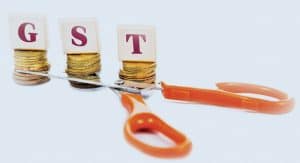 India is expected to become a US$ 5 trillion economy by 2025 and to achieve this, it needs to strengthen the SMEs as they form the backbone of the nation’s growth.
India is expected to become a US$ 5 trillion economy by 2025 and to achieve this, it needs to strengthen the SMEs as they form the backbone of the nation’s growth.
By Baishakhi Dutta
The MSME sector, which contributes to 40 per cent of Indian exports, is about to grow further with the recent spate of reforms. A recent Credit Suisse report states that the SME loan market is estimated to grow to US$ 3,020 billion over the next decade. This brings good tidings to the existing and seedling SMEs in India. RBI reforms like guidelines on the purchase and sale of priority sector lending certificates (PSLC) will help to promote efficient lending practices for the SME sector.
The upcoming government plan of rating MSMEs on 50 parameters will enable the sector to improve the quality of manufacturing and gain a foothold in the international market. Other government led initiatives, such as setting up of the Bankruptcy Bill, will enhance the ease of doing business for SMEs. All these reforms, paired with the government pushing to pass the GST bill this monsoon session of Parliament, will ensure a strong backing to the SMEs in India.
While the ambiguity continues over the GST roll-out dates and rates, SMEs and startups have already started feeling anxious. A national toll-free GST helpline (1800 103 9271) has reported over 10,365 calls related to GST enrollment and other queries. A study of a national toll-free GST helpline run by a well known taxation domain company, KDK Software, reveals that over 70 per cent of the calls received related to the single concern on GST rates and whether this would be a beneficial tax structure for small businesses.
The concerns, at a glance
- Forty-five per cent of the country’s industrial output is produced by the SME sector. The GST’s ₹ 1 million plus slab will impact the working capital of SMEs badly.
- SMEs supplying products to end customers may not benefit from input credits.
The Indian economy is expected to touch US$ 5 trillion by 2025 and, to achieve this, the SME sector needs to be strengthened, as it is the backbone of the nation’s growth. As per the Ministry for Micro, Small and Medium Enterprises, 45 per cent of the country’s industrial output is produced by the SME sector, for national and international demand. The SME sector contributes a lot in terms of its GDP share, employment, innovation, etc.
Mohit Bhambani, CEO of KDK Software says, “With the recent demonetisation and upcoming GST regime, SMEs and startups are facing a very challenging economic environment in addition to their experiencing several highs and lows during the past five years. On the other side, the central government very well understands the importance of the SME sector and has re-implemented the Public Procurement Policy, and also launched the Make in India, Startup India and Skill India campaigns to promote SMEs. The government has created an ecosystem for providing financial and technical support to SMEs.”
Bhambani adds, “About 80 per cent of the calls received were from organisations with a business turnover below ₹ 10 million. We found most of the callers were worried about the GST rates and how the tax would be levied in case a company is supplying products directly to the end customers. Since it will not be eligible for input credit, this will increase the cost of production, which may not be beneficial for such SMEs.”
Also, there is no tax differentiation for luxury items and services under the proposed GST regime, which may lead to the rich becoming richer and the poor becoming poorer, and setting the SMEs up in competition against large business groups.
There is certainly ambiguity regarding GST. Nothing is as yet finalised, though this is expected to happen by July 1, 2017. I hope the tax and incentives will be better than the existing levels.
Subhash Goyal, MD, Digital Circuits Pvt Ltd
There is a lot of ambiguity regarding the GST. Things are not very clear as of now. Many states have classified electronics as industrial products at a tax rate of 5 per cent. However, there is no transparency on the upcoming GST rates.
Vijay Kumar Gupta, CEO, Kwality Photonics Pvt Ltd and LEDchip Indus Pvt Ltd
The way ahead
While hopes rest on the GST to boost GDP growth, the extent of such an impact will depend on a favourable consensus on GST rates for all business segments and the integrated implementation of the same.




























